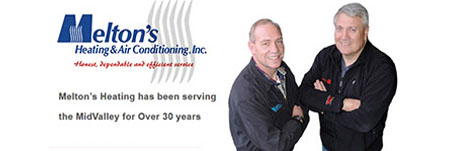
When to Call for Emergency Furnace Repair?

You’ve probably felt that uneasy moment when the cold season hits and you’re suddenly uncertain if your furnace can hold up. It’s the same kind of uncertainty people feel when choosing between splash-back materials—they want to make the right decision but aren’t sure what signs really matter. That doubt becomes even more stressful when your business depends on steady heat.
That’s where knowing exactly when to call for an Electric Gas Furnace Conversion or emergency furnace repair gives you confidence. When you understand the warning signs, you protect your building, your employees, and your customers while staying ahead of expensive winter disruptions.
When should you call for emergency furnace repair?
You should call for emergency furnace repair when your system stops producing heat, releases unusual odors, makes loud noises, or shows signs of a carbon monoxide leak. These issues signal immediate safety risks and can quickly lead to system failure if ignored. Fast professional attention prevents serious damage and restores safe indoor comfort.
A Sudden Loss of Heat Is Your First Red Flag
Few things grab your attention like waking up—or walking into your business—to discover the building is freezing. Sudden heat loss is one of the clearest signals that something inside the furnace has failed.
Whether it’s a faulty ignition system, a failed blower motor, or restricted airflow, losing heat deserves immediate action. According to the U.S. Department of Energy, consistent heating performance prevents pipes from freezing and protects overall building health.
Strange Odors Should Never Be Ignored
The moment you smell something unusual, you should take it seriously. A burning odor may indicate electrical failure or overheated components. A sulfur or rotten-egg smell can signal a gas leak, which requires emergency action right away.
Gas leaks pose a major safety risk. The Environmental Protection Agency emphasizes that indoor air safety is critical in preventing respiratory hazards and building contamination.
Loud or Unusual Noises Signal Internal Failure
Some noise from a furnace is normal, but loud banging, scraping, or rattling often signals bigger problems inside the system. A broken blower wheel, cracked heat exchanger, or loose internal parts can cause serious damage if you keep running the unit.
We’ve seen business owners ignore these sounds, only to face complete system failure days later. Quick repairs prevent costly breakdowns and protect the long-term reliability of your heating equipment.
Short Cycling Can Indicate Dangerous Conditions
If your furnace turns on and off repeatedly, it’s not just a comfort issue; it’s a warning. Short cycling is often caused by overheating, blocked vents, failing sensors, or malfunctioning thermostats. Any of these issues can damage internal components or increase your energy costs.
ASHRAE, a leading authority in building systems, notes that irregular system performance should be evaluated quickly to avoid long-term efficiency loss.
Carbon Monoxide Alerts Demand Immediate Action
If your carbon monoxide detector goes off, turn off the furnace immediately and leave the building. Carbon monoxide is odorless, invisible, and extremely dangerous. A cracked heat exchanger is often the cause—and that’s a repair that must be handled urgently.
As a business owner, ensuring the safety of everyone inside your building isn’t optional. A furnace emitting carbon monoxide requires emergency service without delay.
Yellow or Flickering Burner Flames Indicate Gas Trouble
Your furnace should burn with a steady blue flame. A yellow or flickering flame usually points to incomplete combustion, which may mean your burner is dirty or malfunctioning. In some cases, it can also indicate carbon monoxide production or a gas supply issue. Either way, this is a condition you shouldn’t attempt to diagnose on your own.
Your System Blows Cold Air Instead of Warm Air
You know something is wrong when the furnace is running, but the air coming out is cold. This could mean failing components, restricted airflow, thermostat failure, or a broken heating element. Cold air during winter isn’t just uncomfortable; it can harm your building and disrupt your workflow. Calling for help quickly ensures your system gets back to heating efficiently.
Unexpected Spikes in Your Energy Bills
When a furnace fails internally, it often has to work harder to produce the same amount of heat. This unnecessary strain shows up on your utility bills long before you notice performance issues. Rising energy costs shouldn’t be ignored. If your bill increases suddenly, something inside the furnace is likely malfunctioning—and fast attention can prevent a full breakdown.
Why Acting Early Protects Your Business?
Every business owner knows that heating isn’t just a convenience; it’s a necessity. Delaying repairs can lead to frozen pipes, equipment damage, and major discomfort for everyone inside your building. Emergency furnace repair isn’t just about fixing a system; it’s about protecting the environment where your employees work, and your customers depend on consistent comfort.
And when you combine early repair with smart decisions like Electric Gas Furnace Conversion, you create a safer, more reliable system that works for your business long-term.
Stay Prepared and Stay Warm
When you understand the warning signs—heat loss, odd smells, loud noises, carbon monoxide alerts, or rising energy bills—you know exactly when to call for emergency furnace repair. And when you pair those decisions with smart upgrades like Electric Gas Furnace Conversion, you safeguard your building against winter surprises.
If you’re ready to protect your business and keep your heating system running safely, reach out to Melton’s Heating & Air Conditioning. Their experienced team can respond quickly, restore comfort, and help you stay ahead of winter’s toughest challenges.




